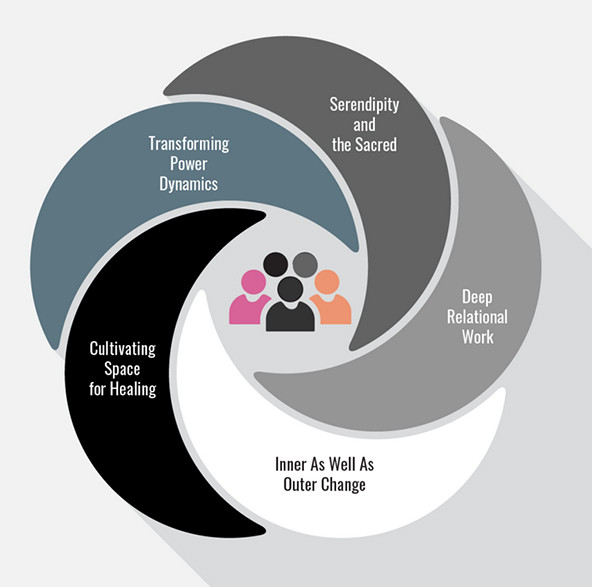The Relational Work of Systems Change

Collective impact efforts must prioritize working together in more relational ways to find systemic solutions to social problems. Sometimes we lose sight of a simple truth about systems: They are made up of people. Despite all of the frameworks and tools at our disposal and all of our learning as a field of practice, purely technical, rational approaches to systems change will not make much of a dent in shifting power or altering our most deeply held beliefs. If most collective impact efforts fall short of supporting people to change in fundamentally consciousness-altering ways, then, the system they are a part of will not significantly change either.
However, over the past two decades, the prevailing view among many funders, board members, and institutional leaders has been that only quantifiable and predetermined outcomes can create impact. But if the interrelated, devastating, and deepening crises and divisions over the past two years have taught us anything, it is that complex, adaptive problems defy tidy logic models and reductive technical solutions. It is time to invest our collective energy in more relational and emergent approaches to transforming system.
-
By
Stanford Social Innovation Review
-
Published
Nov 27, 2023
-
Subject Area
- Age-friendly Communities
- Non-profit / Charitable Sector Development
- Organizational Development
-
Audience
- Funders
- Academics
- Government (Politicians, Policy Makers) and Health Authorities
- Service Providers (Non-profits, Community Organizations, Local government)
- Caregivers, Seniors & Volunteers
- Government
- Health Authorities
-
Category
- Impact Stories
- Leadership & Development
- Organizational development
- Research & Reports
- Policy, Planning, & Procedures
- Evidence-based & emerging practices
Newsletter
Sign up for the Healthy Aging CORE Alberta e-news to keep up-to-date with activity from the platform and the Community-Based Seniors Services (CBSS) sector across the province.
